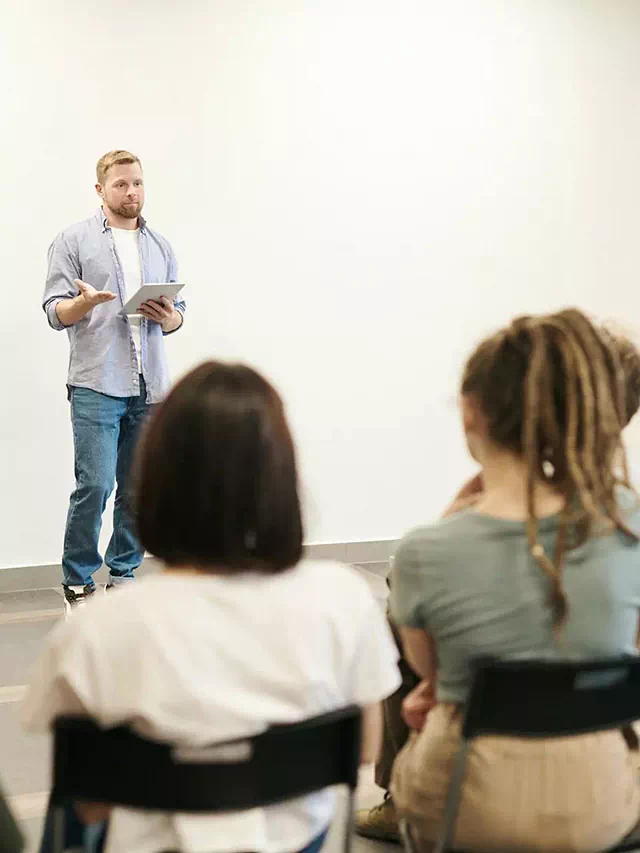Effective communication is essential in our personal and professional lives, and there are many life hacks that can help us to improve our communication skills. Whether you are communicating with your family, friends, co-workers, or customers, the following tips can help you to communicate more effectively and build stronger relationships.
Listen actively
Good communication is not just about speaking, it’s also about listening. When you are engaged in conversation, give the other person your full attention. Avoid distractions and try to understand their perspective. Ask questions to clarify their message and show that you are interested in what they have to say.
Practice empathy
Empathy is the ability to understand and share the feelings of others. When you are communicating with someone, try to put yourself in their shoes and understand their point of view. This will help you to respond in a way that is more considerate and effective.
Avoid negative language
Negative language can be discouraging and demoralizing. Instead, use positive language to build trust and encourage collaboration. When giving feedback, for example, focus on what can be improved, rather than criticizing what has been done wrong.
Be clear and concise
Effective communication requires clarity and conciseness. When you are communicating, make sure that your message is clear and easy to understand. Avoid using technical jargon or complex language that may confuse the listener.
Use non-verbal communication
Non-verbal communication, such as body language, gestures, and facial expressions, can often convey more than words alone. Be aware of your own non-verbal communication and try to interpret the non-verbal cues of others to get a better understanding of what they are trying to communicate.
Be mindful of tone
The tone of your voice can have a significant impact on how your message is received. When you are communicating, pay attention to the tone of your voice and try to use a tone that is appropriate for the situation.
Learn to compromise
Good communication requires compromise. Be open to other perspectives and be willing to listen to what others have to say. Try to find a solution that works for everyone involved, rather than just for yourself.
Be aware of cultural differences
When communicating with people from different cultures, it’s important to be aware of cultural differences and to adapt your communication style accordingly. Different cultures may have different norms, values, and expectations when it comes to communication, and being sensitive to these differences can help to avoid misunderstandings.
Use technology effectively
Technology can be a powerful tool for communication, but it can also create barriers. When using technology, be mindful of the limitations and potential miscommunications that can arise. For example, email and text messages can be misinterpreted without the benefit of non-verbal cues, so be careful to use them effectively.
Take breaks
Communication can be mentally and emotionally draining, so it’s important to take breaks when necessary. Whether you need to step away from a difficult conversation or take some time to recharge, taking breaks can help you to maintain your energy and focus, and to communicate more effectively in the long run.
Practice active listening
Active listening is a skill that requires focus and concentration. When you are engaged in conversation, try to listen actively and avoid interrupting the other person. Pay attention to what they are saying, and ask questions to show that you are engaged and interested in their message.
Be open and honest
Open and honest communication is essential for building trust and strong relationships. When you are communicating with others, be transparent and straightforward. Share your thoughts, feelings, and opinions in a respectful manner, and be willing to listen to others and to engage in open and honest dialogue.
Seek feedback
Feedback is an important part of communication, and it can help you to identify areas for improvement. Be open to feedback from others, and use it to make positive changes in your communication style. Seek feedback from family, friends, co-workers, or a professional coach, and use it to enhance your communication skills.
Effective communication is a critical part of our personal and professional lives. Whether you are communicating with family, friends, co-workers, or customers, these life hacks can help you to improve your communication skills and build stronger relationships. By being aware of cultural differences, using technology effectively, taking breaks, practicing active listening, being open and honest, and seeking feedback, you can enhance your communication skills and achieve your goals.


